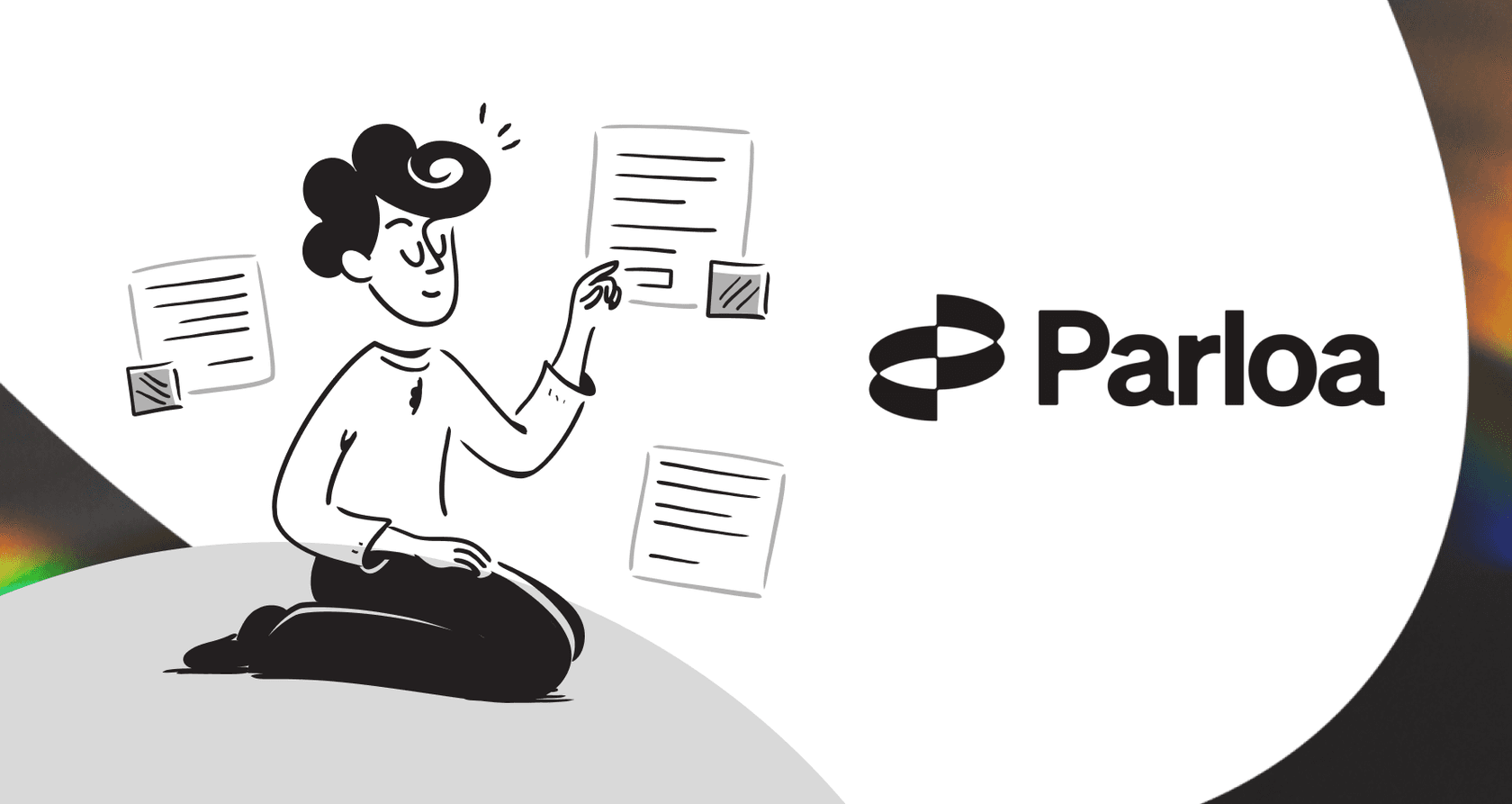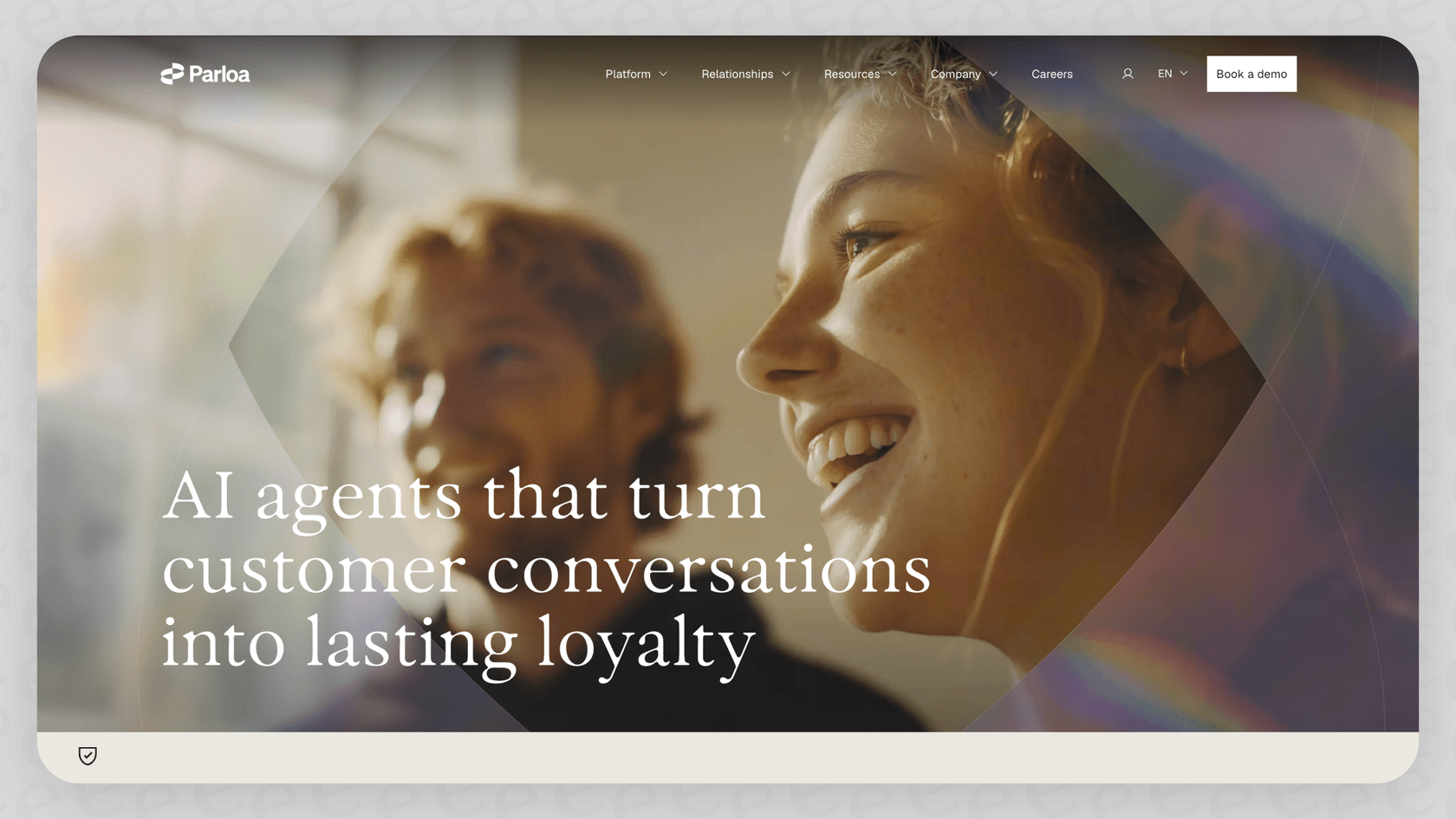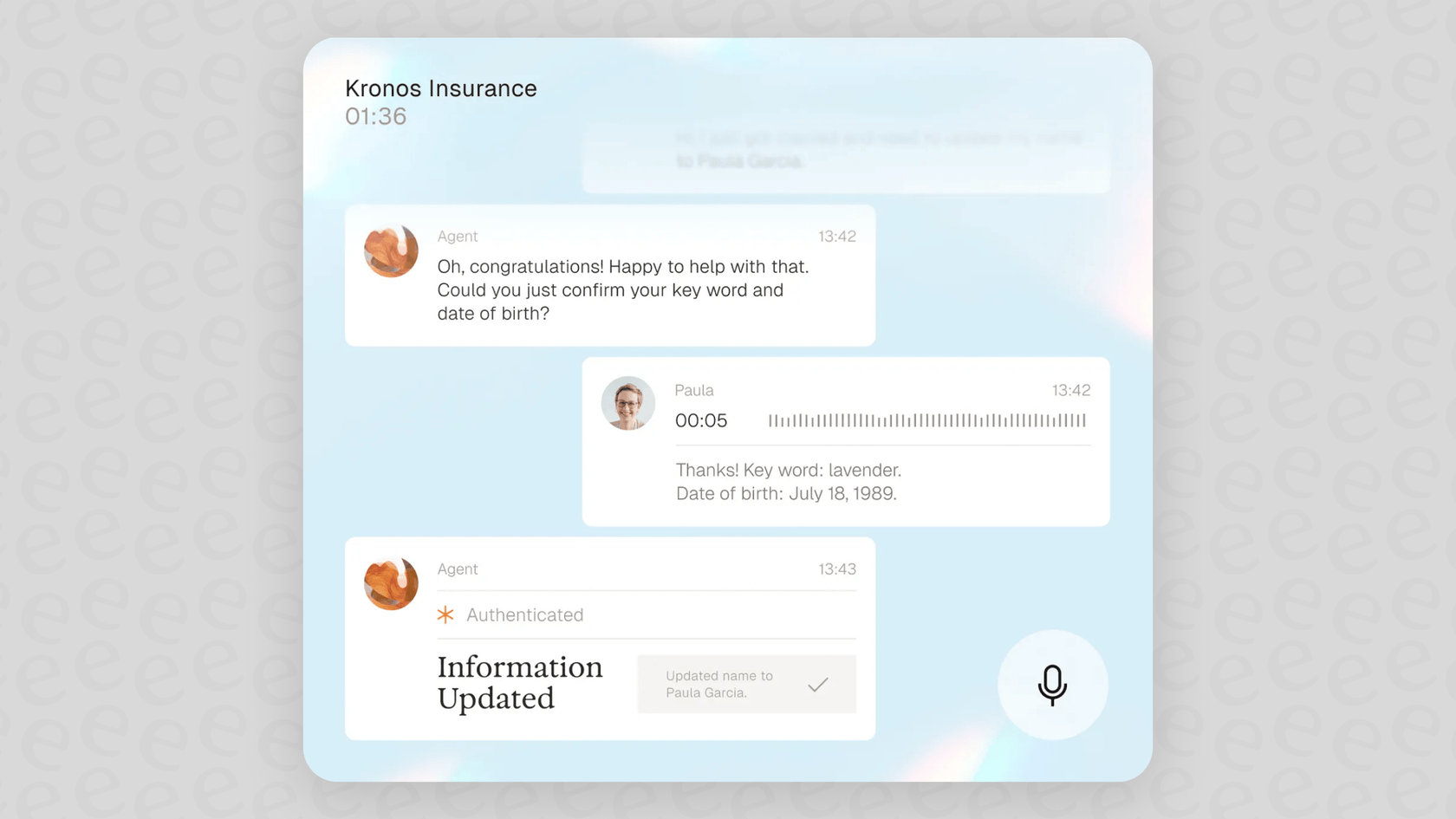
If you're trying to figure out how much Parloa costs, you’ve probably hit a wall. Their pricing page doesn't exist, and every software review site gives you the same unhelpful advice: "contact sales." It’s a classic move for enterprise-focused software, but it makes it nearly impossible to know if the tool is even in your ballpark, budget-wise.
Let's be honest, the whole AI agent world is still finding its feet when it comes to pricing. Companies are trying out everything from flat fees to models based on performance, moving away from the old-school "pay per user" model we all know. This article is here to clear things up. We’ve done the digging, through reviews, analyst reports, and even financing partnerships, to give you a real idea of how Parloa puts a price tag on its service. We’ll break down what their model means for you and show you a more straightforward, predictable alternative.
What is Parloa?
Parloa is an AI Agent Management Platform built for the big leagues, think large, enterprise companies. It’s made to automate customer service, with a special focus on voice calls. Imagine it as the modern, intelligent replacement for those clunky old Interactive Voice Response (IVR) systems that made you want to tear your hair out while you "press one for sales, press two for support."

It’s really designed for industries that get flooded with calls, like insurance, retail, and travel. The whole platform is built to handle massive volume, running on Azure-hosted infrastructure and connecting deeply with other enterprise tools like Salesforce and Genesys. It also has all the major security and compliance certifications you'd expect (SOC2, HIPAA, GDPR), which is non-negotiable for the large consumer brands it works with.
How does Parloa pricing actually work?
Let’s get right to it: Parloa doesn't publish its prices. Simple as that. Like a lot of big enterprise platforms, it uses a custom, quote-based model. You won’t find a handy pricing page with three neat tiers to pick from. Instead, you have to talk to their sales team to get a number. A quick look at review sites like Capterra and TrustRadius confirms this, with both listing the price as "Contact vendor for pricing."
So what exactly goes into that custom quote? Based on how this kind of software is usually priced, your final cost will boil down to a few key things:
-
How much you'll use it (Interaction Volume): This is a big one. The price is heavily influenced by how many calls, chats, or messages your AI agent will be handling each month. More traffic means a higher price tag. They need to make sure their systems can handle your load, and that capacity costs money.
-
How complex your needs are: An AI agent that just answers a few basic questions and routes calls will be much cheaper than one that manages complex, multi-step conversations. If you need it to look up an order status, process a refund by connecting to another system, or handle a detailed insurance claim query, the price is going to climb. Each of those "skills" requires more development and testing.
-
The integrations you need: Connecting Parloa to your existing tech stack, your CRM, your help desk, or a Contact Center as a Service (CCaaS) platform, isn't always a simple plug-and-play. These connections often come with their own integration fees, especially if they require custom work.
-
The human help you'll get: The price usually includes a dedicated customer success manager, help with onboarding, and professional services to design and set up your first AI agent. These services are great, but they are rarely optional and are baked into the overall cost.

One third-party review of Parloa suggests that most companies should expect a minimum starting budget of around $300,000 per year. The fact that Parloa has a partnership with Capchase, a company that helps businesses finance big software contracts, also hints that we're talking about large, annual contracts paid upfront, the kind of expense many companies need a little help to manage.
The hidden costs of Parloa pricing
The final number a sales rep gives you is only one part of the equation. A vague, enterprise-first pricing model comes with other costs that are harder to see at first but can have a big impact on your project and your budget.
Long sales and deployment cycles
Getting a custom quote is not a one-day affair. The process usually involves a whole series of discovery calls, product demos, and deep dives into your needs before you even see a proposal. This can easily stretch out over weeks, sometimes months, leaving your project in limbo while you wait for a price.
And once you finally sign on the dotted line, the clock starts on implementation. That same review we mentioned estimates Parloa’s deployment time is anywhere from one to three months. That’s a whole quarter your team could be waiting to see value. This is a world away from modern, self-serve platforms. A tool like eesel AI, for example, is built for speed. You can sign up, connect your help desk with a click, and start building an AI agent in just a few minutes, all without a single mandatory sales call.

You can't test before you buy
Parloa doesn’t offer a free trial or a self-serve plan. This means you have to make a pretty big financial commitment based on a polished sales demo, not on how the tool actually works with your own data and for your specific needs.
That's a huge leap of faith. Without trying it out in a real-world setting, you have no way of knowing what your AI agent’s resolution rate will be or what the true return on investment looks like. You're buying a promise. This is where a platform like eesel AI completely changes the game. Its powerful simulation mode lets you safely test your AI setup on thousands of your own past support tickets. You can see exactly how it would have handled real customer questions, get accurate predictions on resolution rates, and calculate your potential cost savings before you ever turn it on for live customers.

The total cost of ownership is more than you think
The final price of an enterprise solution is rarely just the annual license. You also have to think about one-time implementation fees, required training for your team, and the possibility of ongoing professional services costs if you need to make changes or add new features down the road. This high upfront investment can also create vendor lock-in, making it incredibly expensive and complicated to switch to another provider if the solution doesn't live up to its promises.
A more transparent way: How eesel AI pricing is different
For teams that need to move fast and want predictable costs, there's a much better approach. eesel AI was built from the ground up to offer enterprise-level power without the friction, confusing pricing, and long wait times of traditional software.
Clear, predictable plans with no gotchas
The first thing you'll notice is that eesel AI’s pricing is completely transparent. You can find all the plans and features laid out right on the website. There are no hidden fees or surprise charges waiting for you.
What's really important is that eesel AI does not charge you per resolution. The plans are based on a set number of monthly AI interactions (an interaction is just one AI reply or one AI action). This keeps your costs predictable and means you don't get punished with a massive bill just because you had a successful, busy month.

| Plan | Effective /mo (Annual) | AI Interactions/mo | Key Features |
|---|---|---|---|
| Team | $239 | Up to 1,000 | Train on docs/websites, AI Copilot, Slack integration. |
| Business | $639 | Up to 3,000 | Everything in Team + train on past tickets, AI Actions, bulk simulation. |
| Custom | Contact Sales | Unlimited | Advanced actions, multi-agent orchestration, custom integrations. |
Go live in minutes, not months
eesel AI is a truly self-serve platform. You don't need a team of developers or a months-long onboarding project. You can connect your help desk, such as Zendesk, with a single click and have a working AI agent in a few minutes. This lets you start proving the value of AI automation on day one, not next quarter.
You're in control and can roll it out gradually
With eesel AI, you can start small and scale up when you're ready. You get fine-grained control to choose exactly which types of tickets the AI should handle, while automatically passing everything else to your human team. The simulation mode makes sure your agent is performing up to your standards before it ever talks to a real customer. This risk-free way of working just isn't an option with Parloa’s big-bang, all-or-nothing approach.
Plus, you can bring all your company knowledge together in one place, instantly. Connect your AI to past tickets from your help desk, your public help center, and your internal knowledge bases like Confluence or Google Docs. This gives it all the context it needs to provide accurate, helpful answers right from the start.
In this video, Parloa's CTO shares his vision for the future of AI in customer service.
Is the Parloa pricing model right for your team?
Parloa is a powerful platform built for massive enterprises, and it has a pricing model to match. It’s not public, it requires a huge upfront investment, and it comes with a long sales and setup process. That approach can work for huge organizations with six-figure budgets, dedicated IT teams, and a company-wide plan to completely rebuild their customer service tech.
But for most teams, that model is just too slow and too risky. If you need to move quickly, show a return on your investment right away, and keep your budget predictable, a transparent, self-serve platform is a much better fit. It puts you in the driver's seat, letting you test, build, and grow at a pace that makes sense for you.
Ready to see what transparent AI agent pricing looks like?
Stop guessing at costs and start seeing real results. With eesel AI, you can simulate your own AI agent on your real data and see your potential resolution rate in minutes. Sign up for free to get started.
Frequently asked questions
Based on third-party reviews, companies should generally anticipate a minimum starting budget of around $300,000 per year for Parloa. This reflects its focus on large enterprise clients and comprehensive solutions.
Your custom quote is primarily influenced by your expected interaction volume, the complexity of the AI agent's required functions, necessary integrations with your existing systems, and the level of human support and professional services included. Each of these elements adds to the overall cost.
Parloa uses a custom, quote-based model common among large enterprise software providers, meaning they don't publish standard pricing tiers. To receive an accurate quote tailored to your specific needs, you must contact their sales team directly for a consultation.
Beyond the annual license, potential hidden costs include long sales and deployment cycles, the inability to test the platform with your data before purchasing, and additional professional services for implementation or changes. These can lead to significant total cost of ownership and vendor lock-in.
No, Parloa does not offer a free trial or self-serve plan to test the platform before making a commitment. This means you typically need to make a substantial financial decision based on sales demonstrations rather than real-world usage with your own data.
The custom, enterprise-focused Parloa pricing model often comes with extended sales and deployment cycles, which can range from one to three months. This means there's a significant waiting period before your team can start realizing value from the AI agent, impacting your time-to-value.
Share this post

Article by
Stevia Putri
Stevia Putri is a marketing generalist at eesel AI, where she helps turn powerful AI tools into stories that resonate. She’s driven by curiosity, clarity, and the human side of technology.







